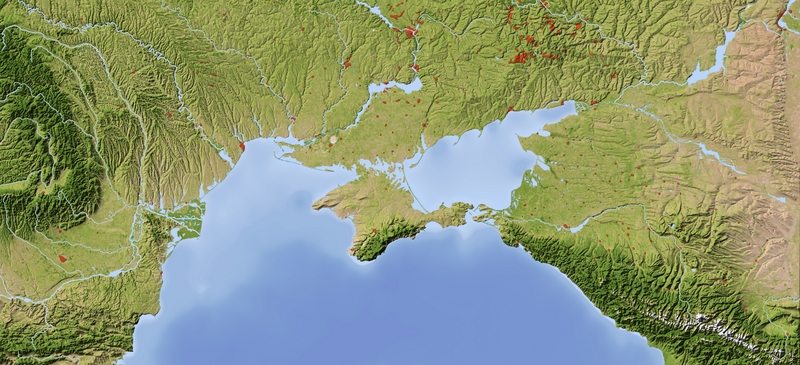
Don't create Eastern Eurosceptics
The EU is in danger of turning the east Europeans into eurosceptics, even before they join the Union. For the past decade, they have seen EU membership as about gaining a nice starry flag and a better way of life. But in 2002, east Europeans have learnt much more about what EU membership entails, and it makes them uneasy. The main feature of membership - it would seem from alarmist television and press reports - is an agricultural policy which will initially provide their farmers with only a quarter of the subsidies given to their much richer west European neighbours. In Slovenia, Poland, Hungary and the Czech Republic, people are worried - probably unduly - that they might have to make net payments into the EU's budget in the first year.
The EU's budget accounts for just over a hundredth of its GDP. But squabbles over sharing the spoils receive a disproportionate amount of political attention in the Union. Acrimonious negotiations in the next few months could cause the goodwill towards the EU in the candidate countries to evaporate.
The EU's 15 members will decide this autumn what to offer the candidate countries. Today's avarice could turn out very costly over the longer term. If the negotiations result in a deal that is patently unfair, the top priority of east European leaders after joining will be to "get our money back". This could delay fundamental reform of the EU's finances, and possibly increase the size of the budget after 2006, when the next budget period begins.
The Commission's proposals for the EU negotiating position would create perverse incentives for the candidate countries. The Commission has suggested that in the first year of membership, the candidates' farmers should get 25 per cent of the direct payments to which they would be entitled under the current rules. They would then get 30 per cent in the second year, with the sum increasing gradually to 100 per cent by 2013. This proposal gives Poland - which has by far the largest agricultural sector among the applicant states - every incentive to argue for a higher percentage and a shorter transitional period, rather than to demand a phasing-out of direct payments for everybody. Any accession deal that gave the new member-states just a fraction of what the old ones get would encourage them to demand the full amount, rather than to seek fundamental reform of the budget.
The proposal could also tip the balance in the debate over the future of the EU's budget away from the reformers - who are currently in the majority - towards the countries that want a larger budget overall. After accession, Poland could become Spain's best friend, teaming up to demand a budget that exceeds the current ceiling of 1.27 per cent of EU GDP.
Like Britain, Portugal and Spain - which spent their first years of membership trying to re-negotiate what they saw as unfair accession terms - the new member-states could be driven by domestic politics to take an obstructive stance in the budget negotiations for the period starting 2007. If the perception grows in eastern Europe that the EU has used its greater muscle in negotiations to force an unfair deal, it will have a profound impact on the future behaviour of the new member-states. The nightmare scenario is ten new member-states which behave like Spain on the budget, but like Britain and Denmark in their euroscepticism. The Polish farmers have already learned from their French counterparts how to gain publicity for their cause: Andrzej Lepper, the populist leader of the 'Self-Defence' party, has blocked roads and attacked trains carrying imported grain.
In framing their common negotiating position this autumn, the EU-15 leaders should limit the accession deal just to 2004-06, and not offer direct payments to the candidates at all. Why start their farmers on that drip-feed addiction, which doesn't suit their needs anyway? Instead, the EU should use that money to ease the pain of the candidates' contributions to the EU budget. The EU should also spend more on rural development, including infrastructure and education.
The EU should not link the enlargement talks to the parallel debate on the 'mid-term review' of the EU's farm policy, for it will be hard enough to reach an agreement on either. The Commission's July proposals to phase out farm subsidies slowly may have greatly annoyed France, but they should have been more radical. However, the EU's top priority must be to conclude the enlargement talks in December, so long as the deal is seen as fair by the candidates. It can return to farm policy reform when the candidates are in. Neither EU nor candidate country governments have presented the budget negotiations effectively to their populations. Most people in eastern Europe have only heard about the farm-sector wrangles and not about the much bigger sums they will eventually get from the structural funds. Meanwhile, there is a widespread perception in the EU that enlargement is going to be very expensive, when in fact the sums allocated to the new members represent less than 10 per cent of the whole budget.
Eurosceptics are largely made, not born. Countries can become awkward partners because their populations believe the EU is not acting in their interest - that is one of the lessons of Ireland's 'No' to the Nice treaty last year. Public support is already dropping in most of the candidate countries. If people hear constantly that the EU has done the dirty on them, they will be more prone to vote for populist eurosceptics. The French and Germans have long bemoaned a lack of 'esprit communautaire' among the British and Danes. If the Union doesn't want to create further Britains and Denmarks, it had better show a little more generosity towards its members-to-be.
